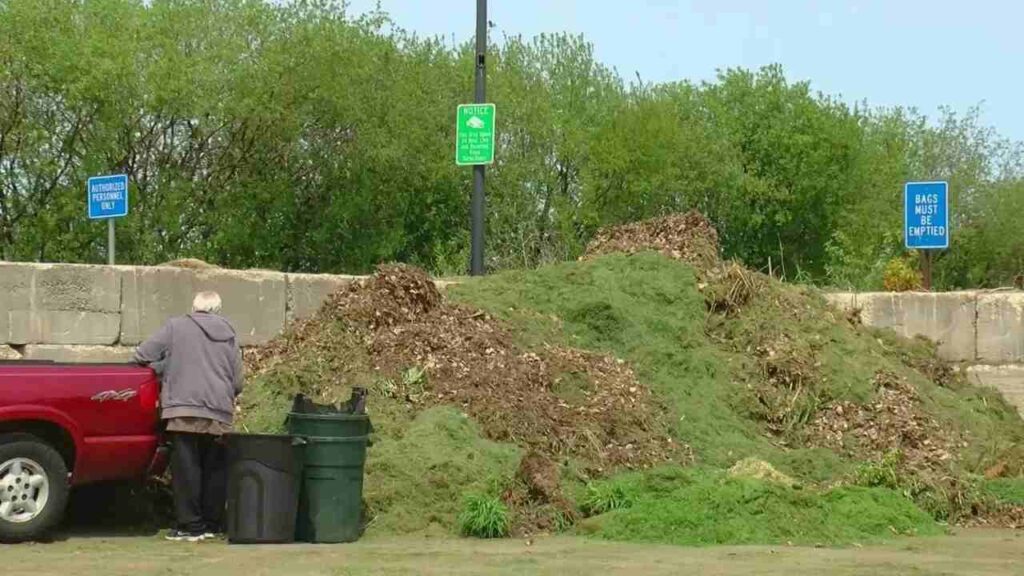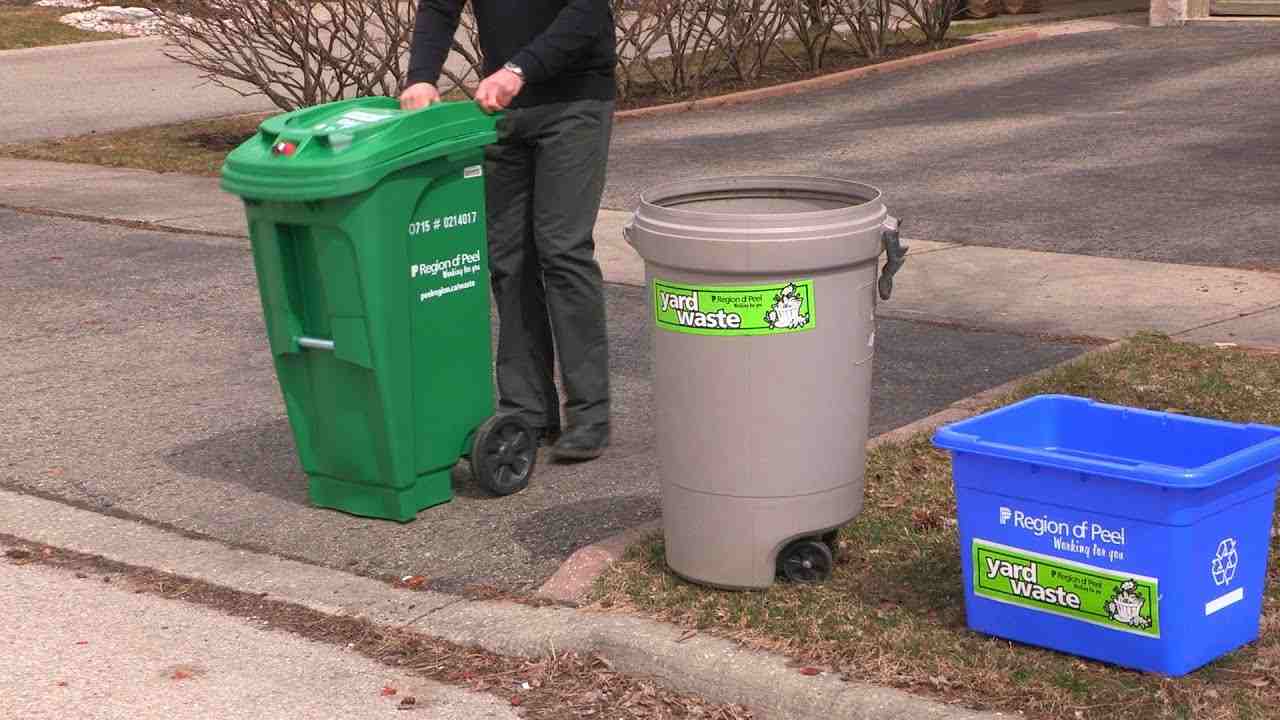Got some yard waste to clear in Michigan? Let’s make that process a breeze! Whether it’s fallen branches, grass clippings, or leaves piling up, knowing how to dispose of yard waste responsibly can save you time and hassle. In Michigan, you have several options at your fingertips. You can also explore local drop-off locations or seasonal yard waste collection events organized by municipalities. By understanding the available disposal methods and choosing the most suitable one for your needs, you can keep your yard tidy while contributing to sustainable waste management practices in your community. Let us jump on the guide to get rid of the waste from your yard with A&B Junk.

From utilizing curbside pickup services offered by waste management companies to taking advantage of composting facilities for organic waste, Yard Waste Removal Services offer eco-friendly ways to handle your yard debris. These services specialize in collecting and disposing of various types of yard waste, ensuring proper recycling or composting according to environmental guidelines. By opting for yard waste removal services, you can efficiently manage your yard debris while contributing to sustainable waste management practices.
Curbside Pickup Services for Yard Waste
Curbside pickup services for yard waste are convenient options provided by waste management companies. These services typically involve scheduled pickups of yard debris such as grass clippings, leaves, branches, and other organic materials. Residents can place their yard waste in designated containers or bags according to local guidelines and have it collected directly from their curbside. This method eliminates the need for individuals to transport bulky yard waste to disposal sites themselves, making it a hassle-free solution for homeowners and promoting regular maintenance of outdoor spaces. In contrast, professional yard removal services may offer additional benefits such as efficient handling of larger quantities of debris, specialized equipment for heavy items, and expertise in proper disposal methods, but may come with associated costs.
Composting Facilities for Organic Waste
Composting facilities play a vital role in managing organic waste from yards and gardens. These facilities accept organic materials like grass clippings, leaves, garden trimmings, and food scraps for composting. Composting is a natural process where organic matter decomposes into nutrient-rich compost, which can then be used to enrich soil in gardens and landscaping projects. By diverting organic waste from landfills and turning it into compost, these facilities contribute to reducing greenhouse gas emissions and promoting sustainable soil health practices.
Benefits of Utilizing Yard Waste Removal Services
Utilizing yard waste removal services offers several benefits to homeowners and the environment. These services save time and effort by handling the collection and disposal of yard debris, allowing homeowners to focus on other tasks. Yard waste removal services also ensure proper recycling, composting, or disposal of yard waste according to environmental regulations, promoting eco-friendly practices. By using these services, homeowners can keep their outdoor spaces clean and well-maintained while contributing to sustainable waste management efforts in their communities.

Types of Yard Debris Accepted
Yard waste removal services typically accept various types of yard debris, including grass clippings, leaves, branches, brush, garden trimmings, and plant materials. These services may have specific guidelines regarding the size, packaging, and preparation of yard debris for collection. Residents should separate different types of yard waste as per the guidelines provided by the service provider to ensure efficient and environmentally friendly disposal.
Eco-Friendly Disposal Methods for Yard Waste
Yard waste removal services employ eco-friendly disposal methods for yard debris collected from residential properties. These methods may include composting organic materials to produce nutrient-rich compost for soil enrichment, recycling woody debris into mulch or wood chips, or using biomass energy conversion for energy production. By choosing eco-friendly disposal methods, yard waste removal services contribute to reducing waste sent to landfills and promote resource conservation and environmental sustainability.
Mulching and Reuse Options
Some yard waste removal services offer mulching and reuse options for yard debris. Mulching involves shredding woody debris such as branches and brush into mulch or wood chips, which can be used for landscaping, erosion control, or ground cover. Reuse options may include repurposing yard waste for projects such as composting, gardening, or creating natural habitats for wildlife. These mulching and reuse options provide sustainable alternatives to traditional disposal methods and help minimize environmental impact while adding value to yard debris.
Local Drop-Off Locations for Yard Debris
In addition to curbside pickup and removal services, many communities provide local drop-off locations for yard debris. These drop-off sites are designated areas where residents can dispose of their yard waste, including grass clippings, leaves, branches, and garden trimmings. Local drop-off locations may have specific hours of operation and guidelines for acceptable materials, so residents should check with their municipal authorities or waste management departments for information.
Guidelines for Proper Yard Waste Disposal
Proper yard waste disposal involves following guidelines set by local authorities or waste management providers. These guidelines may include separating yard debris into different categories, using designated containers or bags for collection, avoiding contamination with non-organic materials, and adhering to collection schedules. By following proper disposal guidelines, residents can ensure efficient and environmentally responsible management of yard waste in their communities.
Seasonal Yard Waste Collection Events
Many communities organize seasonal yard waste collection events to assist residents in disposing of large quantities of yard debris. These events, often held during peak yard maintenance seasons, allow residents to dispose of accumulated grass clippings, leaves, branches, and other organic materials. Municipalities may provide special collection services, drop-off locations, or curbside pickup options during these events to facilitate proper disposal and prevent yard waste buildup in neighborhoods.
Environmental Impact of Proper Yard Waste Management
Proper yard waste management has a positive environmental impact by reducing waste sent to landfills, promoting recycling and composting, and supporting sustainable practices. By diverting yard debris from landfills, communities can minimize methane emissions and conserve valuable landfill space. Recycling and composting yard waste contribute to soil health, carbon sequestration, and nutrient cycling in ecosystems. Sustainable yard waste management practices help protect natural resources, reduce pollution, and mitigate the environmental footprint associated with outdoor maintenance activities.
Community Participation in Sustainable Practices
Community participation plays a crucial role in promoting sustainable yard waste management practices. Residents can support eco-friendly initiatives by properly sorting and disposing of yard debris, participating in local collection events, composting organic materials at home, and educating others about the benefits of sustainable waste management. Collaborative efforts between residents, municipalities, waste management providers, and environmental organizations can lead to a cleaner, healthier environment and a more sustainable future for communities.
Conclusion
In conclusion, proper management of yard waste in Michigan involves a range of eco-friendly options and community participation. Utilizing curbside pickup services, composting facilities, and yard waste removal services not only helps homeowners maintain tidy outdoor spaces but also contributes to sustainable waste management practices. By understanding the types of yard debris accepted and following guidelines for proper disposal, residents can minimize environmental impact and promote resource conservation. Mulching and reuse options further enhance sustainability by repurposing yard waste for beneficial purposes. Local drop-off locations and seasonal collection events provide additional avenues for responsible yard waste disposal. Overall, community engagement in sustainable practices, including recycling, composting, and reducing waste sent to landfills, is essential for preserving natural resources and creating a cleaner, greener environment for current and future generations.
FAQs
FAQ: How can I dispose of yard waste in Michigan?
Answer: You can dispose of yard waste in Michigan through curbside pickup services, composting facilities, yard waste removal services, local drop-off locations, and seasonal collection events organized by municipalities.
FAQ: What types of yard debris are accepted for disposal?
Answer: Common types of yard debris accepted for disposal include grass clippings, leaves, branches, brush, garden trimmings, and plant materials. Check with your waste management provider or local authorities for specific guidelines.
FAQ: Are there eco-friendly disposal options for yard waste?
Answer: Yes, there are eco-friendly disposal options such as composting organic materials, mulching woody debris, and using yard waste removal services that prioritize recycling and responsible disposal methods.
FAQ: How can I participate in seasonal yard waste collection events?
Answer: Participate in seasonal yard waste collection events by checking with your municipality or waste management provider for event schedules, drop-off locations, and guidelines for preparing yard debris for collection.
FAQ: What role does community participation play in sustainable yard waste management?
Answer: Community participation is crucial in promoting sustainable yard waste management practices. By properly sorting and disposing of yard debris, participating in local events, and supporting eco-friendly initiatives, residents contribute to reducing waste and preserving natural resources.




